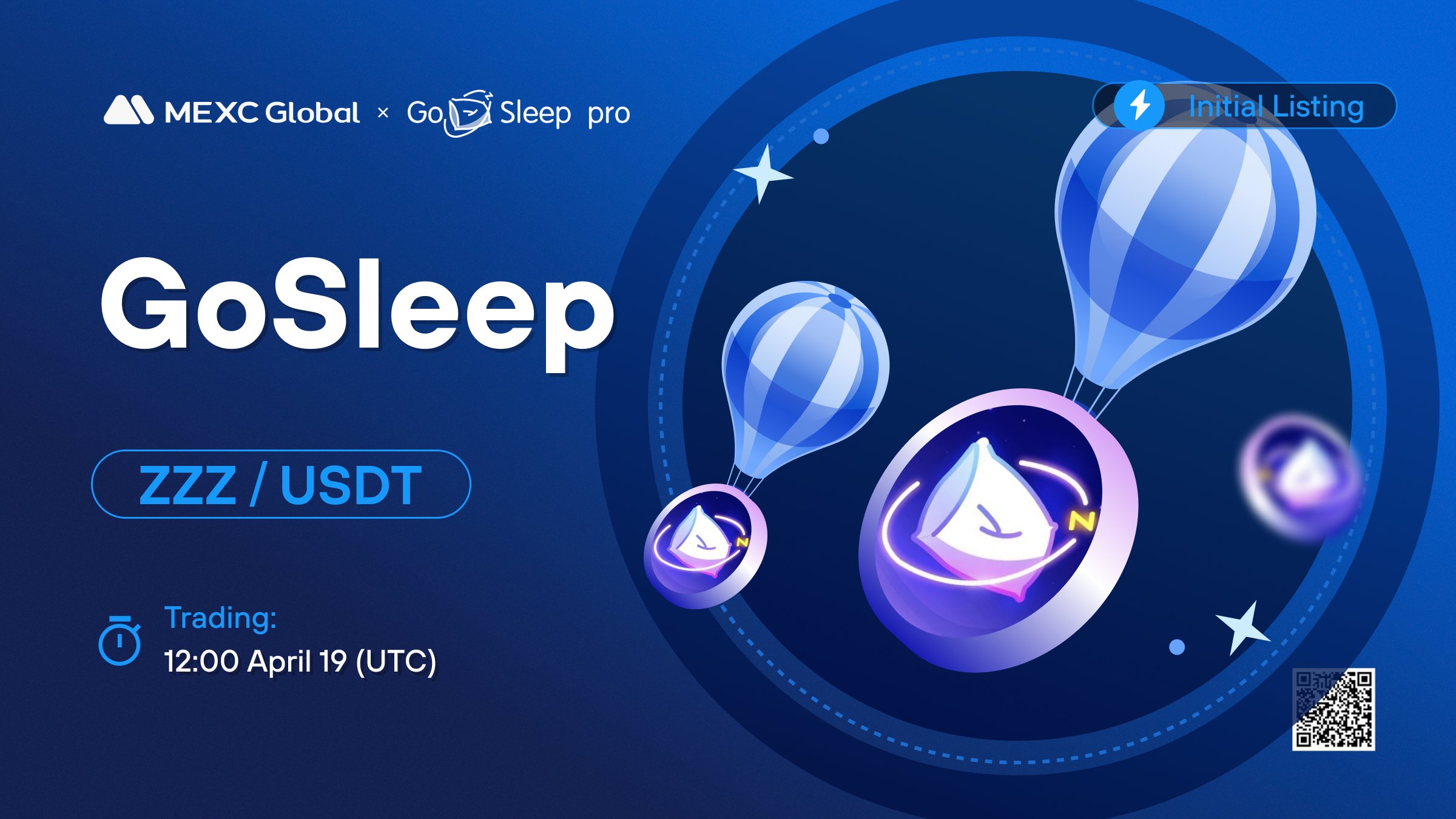Key Takeaways
- RICE AI addresses the problem of data scarcity for robots through a decentralized physical infrastructure network (DePIN).
- The platform relies on real-world applications from Rice Robotics, with robots already deployed at SoftBank, 7-11 Japan, and Mitsui Fudosan.
- $RICE tokens serve as incentives, governance, payment, and deflation mechanisms to promote ecological sustainability.
- RICE AI aims to advance AGI robots, unlocking a future labor market worth $45 trillion.
Introduction
The robotics industry is ushering inthe breakthrough era of Artificial General Intelligence (AGI),with the future robot labor market projected to reach $45 trillion. However, the scarcity of training data for robots has become a bottleneck. RICE AI relies on Rice Robotics real-world application scenarios to propose a decentralized physical infrastructure network (DePIN) model, leveraging blockchain + token incentives,to create the world’s firstdecentralized AI robot data platform.。
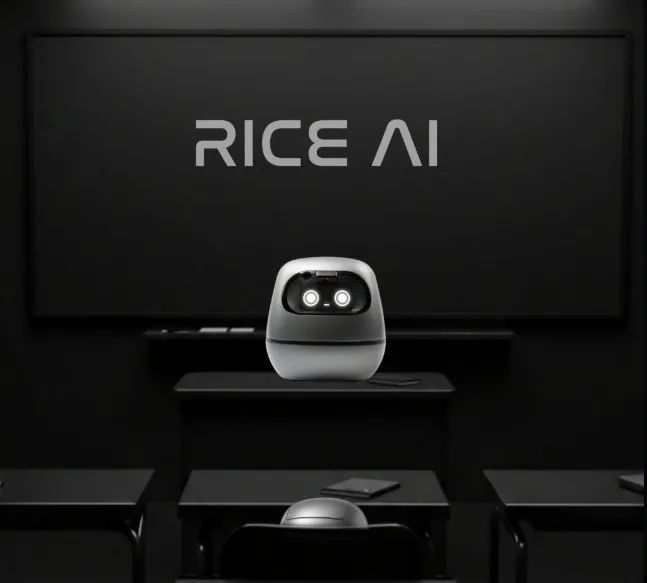
1. Overview and Vision of the RICE AI Project
- Vision: To break data barriers and promote the intelligent development of robots through a decentralized crowdsourcing model.
- Real Foundation: Rice Robotics has deployed robots in places like SoftBankoffices,7-11 Japan,、Mitsui Fudosan , providing strong real-world validation.
- Core Value: Democratizing AI data collection, reducing costs, enhancing data diversity, and accelerating the adoption of AGI robots.
2. Technical Innovations and Core Architecture of RICE AI
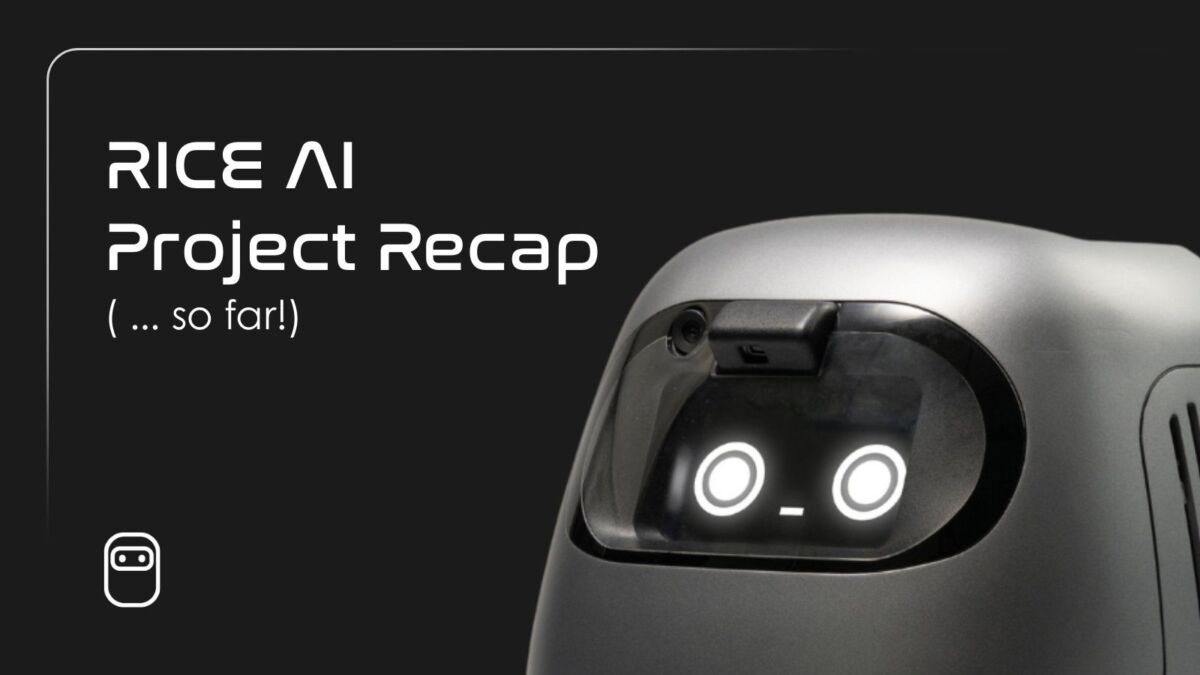
2.1 Decentralized Physical Infrastructure Network (DePIN)
RICE AI combines robotic hardware with blockchain incentive mechanisms to construct a global data collection network. Multimodal Interaction Methods:
- Webcam skeletal recognition → Translates human actions into robot commands.
- Joystick controller → For precise task execution.
- VR controller → Immersive remote control.
- Professional console → Adaptable for high-degree-of-freedom robots.
2.2 Dimensions of High-Quality Data Collection
- Visual data:High-definition RGB and depth images from robot cameras.
- Motion data:Joint movement and trajectory tracking.
- Mechanical feedback:Sensors capturing mechanical information from environmental interactions.
- Environmental context:Sensor fusion to construct multidimensional operational scenes.
3. $RICE Token Economic Model
3.1 Basic Information
- Total Supply: 1 billion tokens.
- Market Cap: Approximately $11.57 million.
- Current Price: $0.06245.
- Funding Size: Completed 4 rounds of funding, totaling $7 million.
3.2 Core Functions
- Data provider rewards → Token incentives for contributing robot data.
- Platform access and discounts → Developers can use $RICE to access data and discounts.
- Governance rights → Token holders can participate in platform decisions.
- Deflation mechanism → Transaction fees for buyback and burn, promoting long-term value growth.
3.2 Release Mechanism
- 20% unlocked immediately.
- 80% to be released linearly over six months to ensure liquidity and balance incentives for long-term holders.
4. Strategic Cooperation and Ecological Layout of RICE AI
- DWF Labs → Market liquidity and technical support.
- Floki & TokenFi → Expanding 700,000+ crypto community users.
- Rice Robotics → Already deployed in multiple enterprise-level scenarios, validating technical feasibility.
5. Market Applications and Core Values of RICE AI
5.1 Decentralized Robot Data Market
- Buyers (AI developers/research institutions) → Acquire high-quality, diverse training data.
- Sellers (remote operators) → Earn stable income through data contributions.
- Platform providers → Promote ecological circulation based on transaction fees and token value growth.
5.2 Typical Application Scenarios
- Indoor autonomous navigation.
- Precision operation of industrial and service robots.
- Human-Machine Interaction Optimization
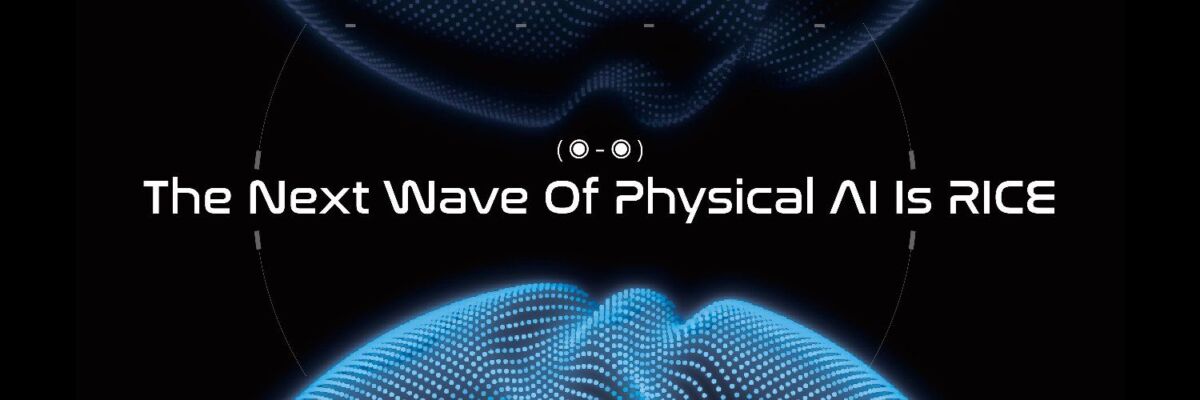
6. Competitive Advantages of RICE AI
- First-Mover Advantage: The first DePIN+ Robot AI Data Platform
- Real-world Implementation: Rice Robotics has deployed real robots
- Comprehensive Data: Visual, Motion, and Mechanical Multimodal Data
- Economic Incentives: $RICE incentives ensure continuous data output
- Industry Alliance: Strong partnerships to promote commercialization
7. Investment Value and Future Outlook of RICE AI
- Market Size: $45 trillion future robotics market
- Technical Validation: Enterprise deployment cases and financial support
- Token Model: Multiple use cases + deflationary mechanism
- Network Effect: More data leads to greater platform value
8. Conclusion
RICE AI is not just a blockchain project, but also a driving force forthe integration of AI and robotics . Withreal-world applications, strategic partnerships, and an innovative token economy, RICE AI is leadinga new era of decentralized robotic data infrastructure. 的新时代。
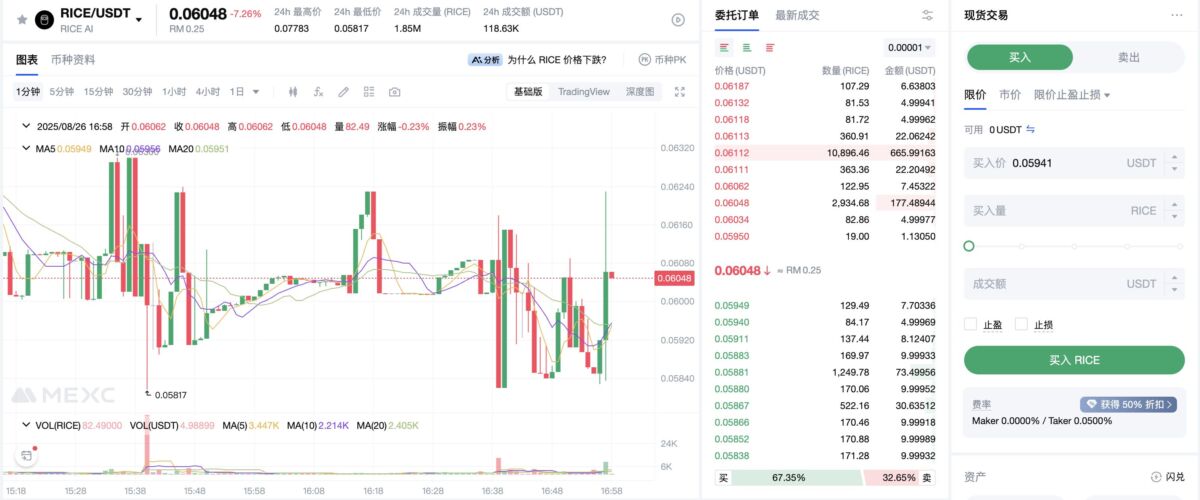
Recommended Reading:
WLFI Ignites the Crypto Market: Experience Pre-Market Perpetual Contracts and Benefits at MEXC
MEXC Pre-Market Trading WLFI Ultimate Guide: How to Buy WLFI Early?
Disclaimer: This material does not provide advice regarding investments, taxes, legal, financial, accounting, consulting, or any other related services, nor does it constitute a recommendation to buy, sell, or hold any assets. MEXC’s Beginner Academy provides information for reference only, and does not constitute any investment advice. Please ensure to fully understand the risks involved and invest cautiously, as user’s investment actions are not related to this site.
Join MEXC and Get up to $10,000 Bonus!
Sign Up
